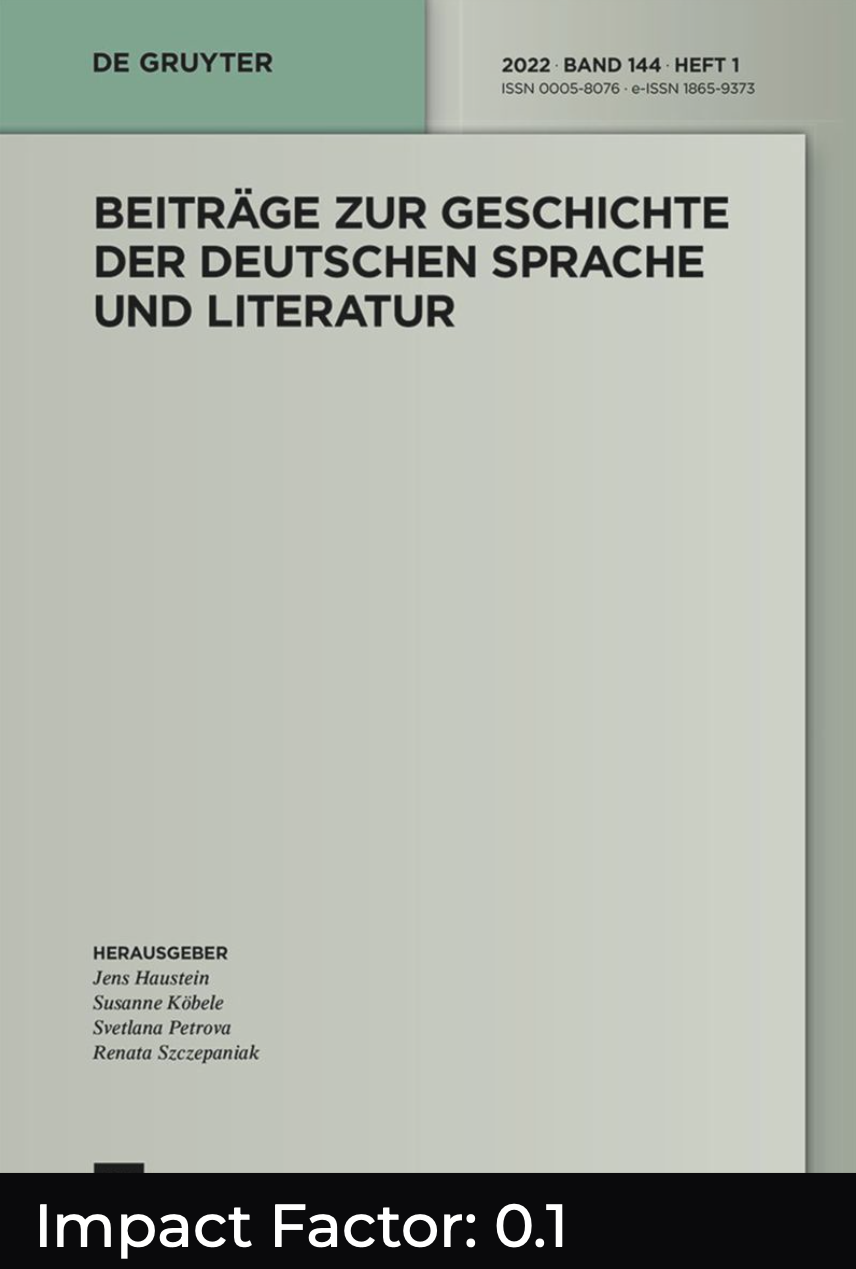
In premodern narratives contradictions are omnipresent – conflicting concepts, logical inconsistencies, acts of objection. In a narratological perspective ›contradiction‹ – conflicts of incompatible knowledges and narrative patterns; inconsistencies in or between speech (by narrator or characters) and action; contradictory or inconsistent information and motivation – is apt to subvert, complicate, or enrich the textual production of meaning. The project ›Contradiction as a Narrative Principle in Premodern Narrative‹ (University of Bremen) explores different types of contradictions in medieval epic and romance.
Beiträge zur Geschichte der deutschen Sprache und Literatur 139: 69–90.